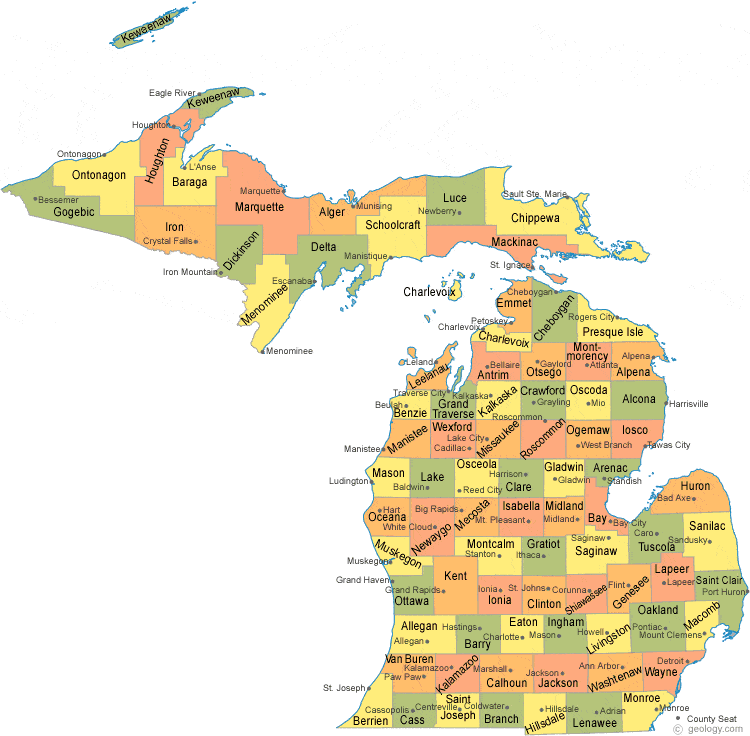So you want to research Michigan Genealogy? Well, first, it is helpful to know its history so you have some perspective.
Michigan is the 10th most populous state and has played an integral part in our nation's automotive industry. What is now Michigan was first settled by various Native American tribes before being colonized by French explorers in the 17th century and becoming a part of New France.
After the defeat of France in the French and Indian War in 1762, the region came under British rule and was finally ceded to the newly independent United States after the British defeat in the American Revolutionary War. The area was organized as part of the larger Northwest Territory until 1800 when western Michigan became part of the Indiana Territory.
In 1805, the Michigan Territory was formed, which lasted until it was admitted into the Union on January 26, 1837, as the 26th state. The state of Michigan soon became an important center of industry and trade in the Great Lakes region and a popular immigrant destination.
Researching Michigan Genealogy

An individual doing Michigan genealogy research needs to consider the history of the state, the 83 counties, and the individual cities. Over the course of time, counties have merged, split up, and changed names, which can cause some confusion with the records. However, folks from Michigan are proud of their history and where they come from, which has preserved many important records.
If you have a Michigan ancestor, then here are a few links to help give you a quick start to finding them:
- Michigan Birth Records
- Michigan Marriage Records
- Michigan Death Records
- Michigan Military Records
- Michigan Civil War Records
- Michigan Naturalization Records
- Michigan Newspapers
That should be enough to get you started on your journey to researching Michigan genealogy and tracing your ancestor’s footsteps.
Advanced Research Techniques
If you want to pursue your Michigan ancestor further after finding them in census reports or vital records, then the next step would be to contact local archives. Here is a list of places you should check out if you want to dive deeper:
- County Clerk’s Office: Contacting the county clerk can help you find some land records, court documents, and other interesting documents that will give you a deeper look into your ancestor’s life.
- Local Library: What were the newspapers during that time period? Most libraries have microfilm that will allow you to read what was going on during your ancestor’s life. Many libraries also have obituary collections.
- Local Genealogical Societies: Most counties have their own historical society, and many cities also have genealogical societies. It is quite possible that someone has come before you and done much of the research and has written it down. If that is the case, then a local genealogical society would have that document.
- Local Cemeteries: Finding the grave of your ancestor can also give additional clues.
- Local Civil War Re-enactment Groups: If you have an ancestor who fought in the Civil War and you know what unit they were in, then it would be beneficial to see if you can locate a re-enactment group for that unit.
Good luck hunting down your Michigan ancestor.
